RAID Earth Month activation program participants
RAID is excited to announce the 17 RAIDers that have been selected to undertake the “Visibility for influence and impact in research and agriculture: RAID Earth Month activation program”. Over the next two weeks these individuals will learn about a range of frameworks and tools that will enable them to develop their communication and leadership skills in order to tackle the issue surrounding AgR4D and climate change!
Learn more about our participants below.
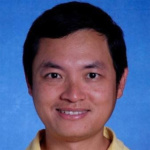
Professor Daniel Tan
University of Sydney
Daniel Tan is an academic at the University of Sydney. He graduated from the University of Queensland with a BAppSc (Hort Tech) (Hons 1) in 1991 and a PhD in 1999. He is a Graduate of the Australian Institute of Company Directors (2015) and a Senior Fellow of the Higher Education Academy (SF HEA). He was elected a Director for the AG Institute National Board in 2015 and re-elected in 2017 and 2020. Daniel is project leader of the ACIAR-funded project, CamSID (CSE-2015-044), to intensify and diversify rice-based systems in northwest Cambodia https://aciarcambodiasidproject.wordpress.com/
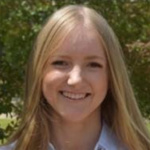
Grace Scott
Soil Carbon Co
Grace Scott is a microbiology officer researching microbial carbon sequestration at Soil Carbon Co. She is currently developing tools for the rice industry to capture carbon from the atmosphere and return it to the soil. Grace has a Master of Research from University of Nottingham studying nitrogen-fixing bacteria for cotton and a Bachelor in Advanced Natural Sciences from Western Sydney University. She is looking forward to setting up a project to research beneficial rice microbes in South East Asia with a grant from the Bayer Foundation when borders open post-COVID.
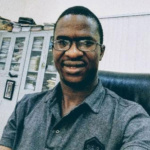 Emmanuel Adela
Emmanuel Adela
University of Ibadan
Emmanuel Adela is a doctoral student at University of Ibadan, Nigeria. He is a member of Nigerian Institute of Animal Science. He has passion for sustainable livestock production, and also advocates for OneHealth. He conducts studies on nutritional strategies for smallholders to adapt to challenges (such as scarcity of feed resources and heat stress) imposed by climate change, and also on mitigating the negative impacts of livestock production on the environment, focusing especially on reducing greenhouse gases production. He has co-authored 4 research papers published in international peer-reviewed journals. Above all, he is a lover of nature, and a conservationist.
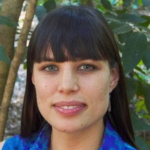 Dr Jacqueline Lau
Dr Jacqueline Lau
ARC Centre of Excellence for Coral Reef Studies / James Cook University / World Fish
Jacqui Lau is a post-doctoral research fellow with the Australia Research Council Centre of Excellence for Coral Reef Studies, James Cook University, and WorldFish. Jacqui’s research examines issues of justice and climate change resilience in small-scale fisheries and coastal communities. She seeks to understand how aspects of identity, perceptions of justice and morality shape and constrain environmental governance and development, and how coastal resources and livelihoods can be equitably sustained in the face of change. Her research is interdisciplinary, drawing on human geography and sociology, and often in collaboration with natural scientists.
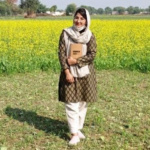 Anam Afzal
Anam Afzal
ACIAR
Anam Afzal is a veterinarian and working as an Area Advisor in an Australian Centre for International Agricultural Research (ACIAR) funded project “Dairy-Beef project” in Pakistan from the last 4.5 years. She has been awarded ACIAR; John Allwright Fellowship (JAF) for pursuing her PhD studies at University of Melbourne Australia. She has been engaged in various livestock and social science researches, and conducting training of smallholder farming families and farm advisors about improved livestock and agriculture farming practices. She is passionate to explore more about extension impacts on household’s nutrition and sustainable food security which is affected by climate change.
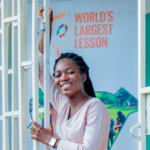 Iyanuoluwa Moyinoluwa Shittu
Iyanuoluwa Moyinoluwa Shittu
Mobile Rural Water
Iyanuoluwa Moyinoluwa Shittu is an enthusiastic water advocate and CEO of Mobile Rural Water. Her organization works on providing water for rural communities through every water order made on her Application. She had volunteered with many organization whose work ranges from Environmental Conservation to water conservation. She hopes to pursue a Masters soon in this direction.
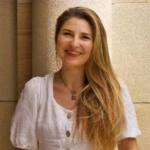
Charlotte Rambla
QAAFI, UQ
Charlotte is Italian and French, with Spanish and Armenian origins. She is currently undertaking a PhD at the Centre of Crop Science, Queensland Alliance for Agriculture and Food Innovation (QAAFI). Her research is part of an international project funded by the International Wheat Yield Partnership (IWYP) that assembles a world-class team of leaders in root research and wheat genetic improvement. She is studying the root system of wheat to develop different root ideotypes adapted to a diverse panel of environments and soil profiles. She Co-founded a podcast called Illuminata where she highlights women in agriculture sharing stories to inspire young girls. Currently she is a Young Science Ambassador from Wonder of Science aiming to promote a STEM culture in Queensland schools.
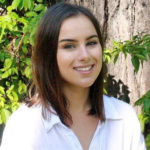
Grace Weston-Oliver
Centre for Tropical Crops and Bio Commodities, QUT
Grace graduated in 2017 with a bachelors in Biological Sciences from the Queensland University of Technology. After conducting work experience at the Centre for Tropical Crops and Bio Commodities within QUT, she developed a keen interest in the development of climate tolerant staple crops using Gene editing technology. She is currently working as a research assistant at, the now, Centre for Agriculture and the Bioeconomy, with a focus on everything pulse related, and is passionate in sharing the potential role that these crops will play as we move into a future with a very different climate.
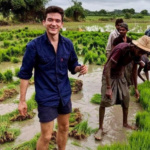
Sam Coggins
ANU
Sam is an agriculture enthusiast that wants to live in a climate that supports farmers, the environment and the people that depend on both. For the past 12 months, Sam has been part of a Cornell University team researching how farmers experience digital services in low- and middle-income countries. He is now doing a PhD at ANU researching opportunities for digital services to help rice farmers in Northeast India reduce fertilizer waste/emissions.
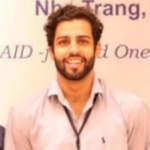
Dr Max Barot
University of Melbourne
Max Barot is a cattle vet at heart but has now found himself working more in the international development space with a focus on how humans, animals and the environment work (or not work) together. He enjoys teaching and learning and has been fortunate to work in different countries seeing what diverse challenges and solutions can look like. Max also loves reading, most sports and spending time with my friends in forests or at beaches.

Mary Addae
Graduate
Mary Addae is a MPhil Agribusiness Graduate from the University of Ghana and a certified Monitoring and Evaluation expert. She am passionate about the growth and sustainability of agribusiness across the globe through innovative strategies, optimisation management and climate-smart techniques. Mary’s education, research and expertise includes a range of optimisation management, agricultural markets and profitability analysis and climate change. She has experience as a research assistant, consultant, agribusiness officer and project assistant. Currently her goal is to pursue a career and PhD in climate change adaptation for rural and indigenous people.
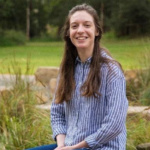
Bethany Donker
University of Melbourne
Bethany Donker is research assistant at the University of Melbourne in the Faculty of Veterinary and Agricultural Sciences. Growing up in Sudan and Kenya, she developed a strong awareness of food security challenges which instilled in her a desire to contribute to sustainable agricultural development internationally. Bethany is currently part of an ACIAR-funded project in Pakistan working with smallholder livestock systems. Her work looks at the intersection of animal nutrition, digital technologies, and extension approaches. Bethany is passionate about science communication and has loved the opportunities to connect and contribute since joining RAID as a Victorian Representative in 2020.
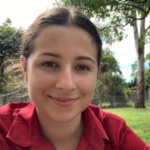
Nikala Passaris
Queensland Farmers’ Federation
Nikala is a recent graduate with the Queensland Farmers’ Federation, working for an agronomy firm in the Burdekin Dry Tropics. Nikala moved from Western Australia to learn about practice change within the sugar cane industry and how it may alleviate human-induced stressors on our Great Barrier Reef. Nikala is passionate about food security and environmental preservation and wants to work with growers to find a win-win solution. Eager to bridge the gap between science and practice, Nikala is excited about a future where sustainability is so ingrained in our day-to-day, we don’t even know we’re doing it!
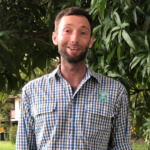
Angus Dunne
Resource Consulting Services
Angus Dunne is a project officer with Resource Consulting Services, he has spent the last two years working on Project Pioneer. With 50 amazing grazing businesses transitioning their thinking, businesses and properties through RCS management. Angus was also involved in an Australian first water quality trial looking at the impacts of grazing management on water quality outcomes related to the GBRF. As an early career Agro-ecologist Angus has a passion for the role of food in regenerating communities and landscapes. Originally from Orange, NSW. He completed a Bachelor of Ecological Agricultural systems form Charles Sturt University in 2018.
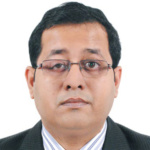
Abu Noman Faruq Ahmmed
Sher-e-Bangla Agricultural University
Abu Noman Faruq Ahmmed is a plant pathologist, organizer, media personnel, popular write and author from Bangladesh. He is now working as a faculty in the Department of Plant Pathology of Sher-e-Bangla Agricultural University (SAU), Dhaka, Bangladesh. Mr. Ahmmed published two books, one manual, around 100 popular articles and 50 scientific articles in national and international journals. He was awarded NFP fellowship from the Netherlands and Crawford Fund Fellowship from Australia. He actively involved in many social and professional research networks/organizations in home and abroad. Mr. Ahmmed also involved in editorial activity of scientific journals and science magazines.
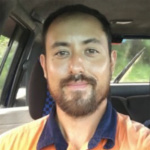
Nicholas Metherall
Nick’s research areas and skills include: GIS, remote sensing, hydrological and environmental modelling, python, FullCAM carbon accounting, field sampling and measurements of surface water and groundwater, forestry biomass carbon and ecological assessments. Nick has worked in the Federal Departments of Agriculture, Water and Environment, the Climate Change Division and the Australian Trade Commission. Nick also worked in environmental monitoring of the impacts of the Ranger Uranium Mine on the Magela floodplains in the Northern Territory. Nick led a team of volunteers to secure second place in the MAXAR Spatial Challenge regional category for remote sensing to monitor bushfire recovery.


